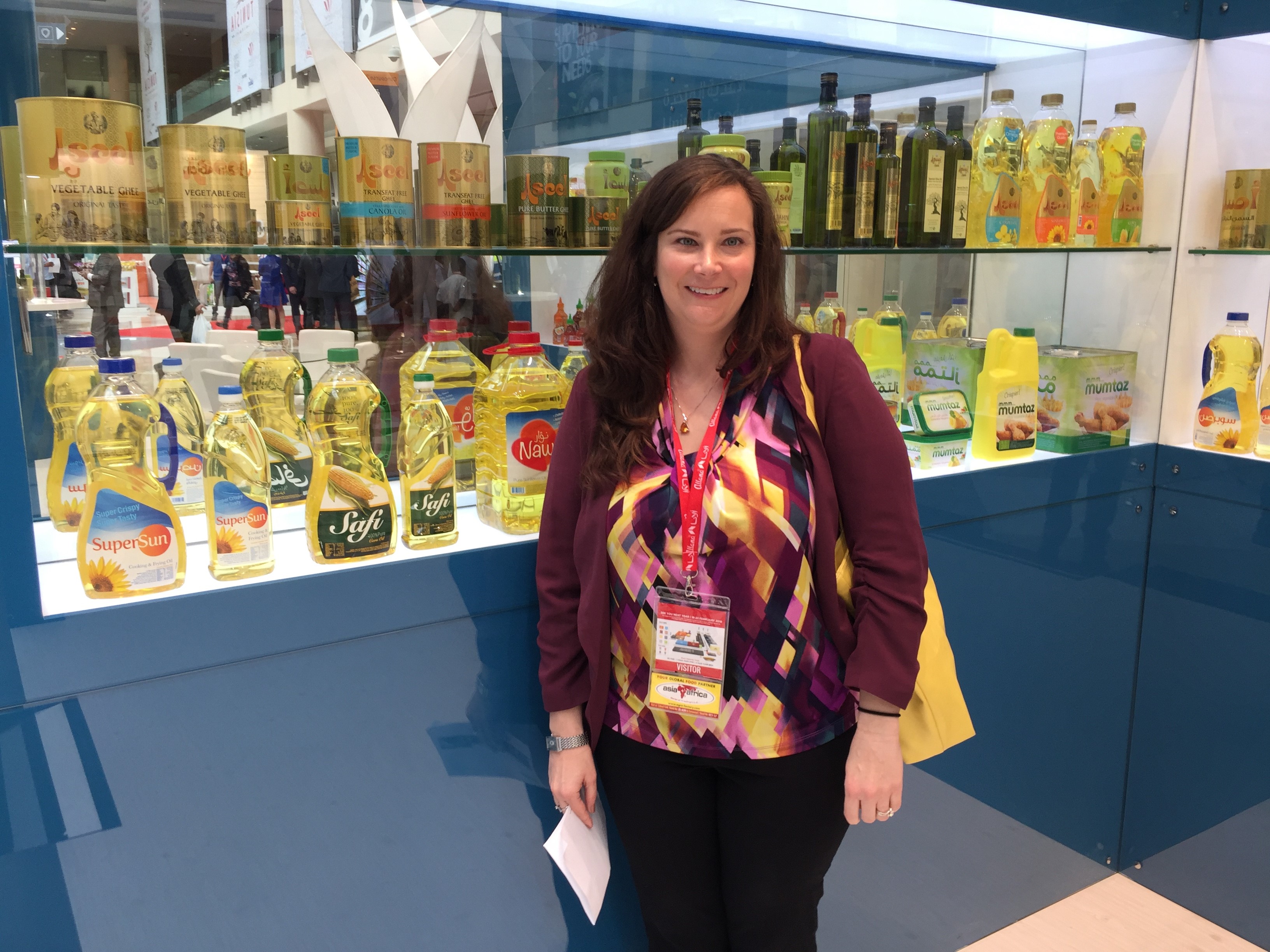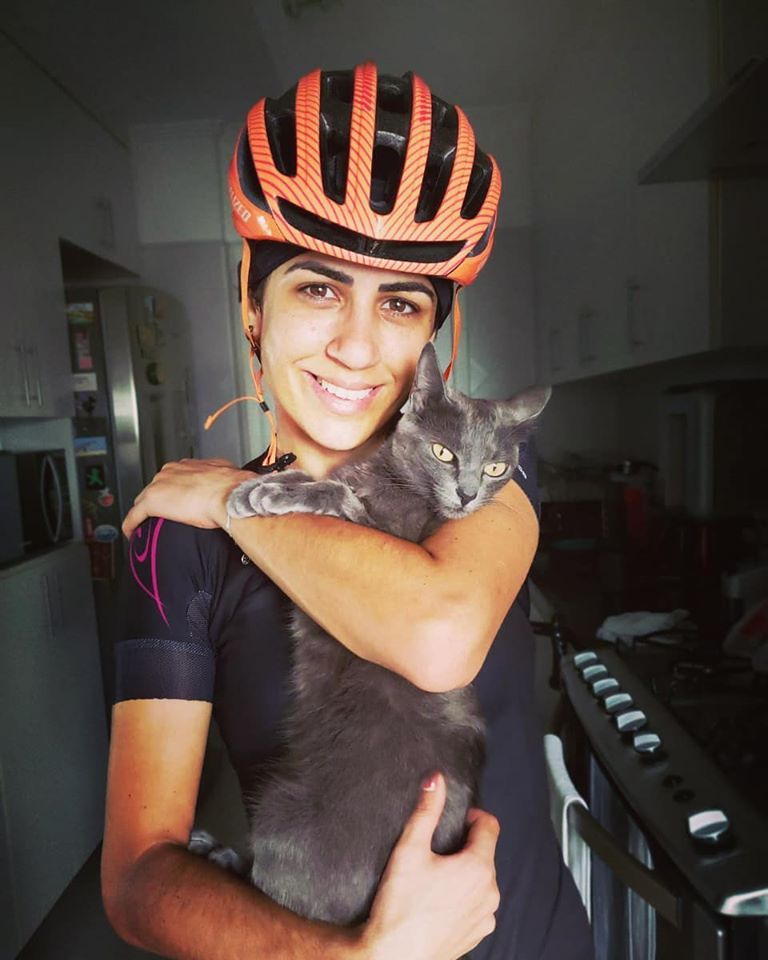It happens every year — so why is this International Women’s Day particularly poignant?
Just look at the data.
Read Time: 4 minutes
July 01, 2021
Sarah Jelken used to wince at drawing attention to her gender.
“I didn’t want to be different. I just wanted to progress based on merit,” the product line lead in Cargill’s Starches, Sweeteners and Texturizers (CSST) business says.
 Today, Sarah is chair of the Cargill Women’s Network (CWN) North America leadership team — a role that sees her “celebrating not hiding gender difference.” “Differences actually make us more successful for our customers,” she notes. “Looking back, I think I was shortsighted.”
Today, Sarah is chair of the Cargill Women’s Network (CWN) North America leadership team — a role that sees her “celebrating not hiding gender difference.” “Differences actually make us more successful for our customers,” she notes. “Looking back, I think I was shortsighted.”
On this International Women’s Day, Sarah hopes we all see that women’s interests are everyone’s interests. The theme, Choose to Challenge, she says, is one that “takes all of us.”
An inflection point for women
International Women’s Day this year comes at a pivotal time. For Cargill, it follows our recommitment to achieving gender parity by 2030, including the launch of a new diversity, equity, and inclusion (DEI) strategy to ensure we get there.
For our society, it comes at a moment when women are under added pressure. McKinsey finds that COVID has been hardest on women. “Working mothers have always worked a ‘double shift’ — a full day of work, followed by hours spent caring for children or doing household labor. Now the supports that even made that possible for women — including school and childcare — have been upended,” says the report.
State of the female workforce
With school closures, remote work and separation from loved ones affecting Cargill employees just like everyone else, Myriam Beatove wondered how our women were coping. The head of Cargill Human Resources and CWN executive champion met with CWN members and launched a survey in partnership with the network. The findings on the impact of COVID and progress on gender parity overall? Encouraging and sobering.

The good...
On the positive side, nearly three-quarters of the 2700 women who responded said remote work helped them manage their family commitments. They credited Cargill with making good progress in this area — as well as on parental leave and adding men as allies.
“Across our regional listening sessions, there was a consistent theme about how much women valued flexible work arrangements,” Myriam says. “So, coming out of COVID, we will want to continue to prioritize flexibility while preserving the benefits of in-person collaboration.”
The ‘needs attention’
Still, two-thirds of respondents said it was challenging to do their job and take care of family. When asked if they had considered leaving the workforce due to COVID, 14% of Cargill respondents said “yes.” Any yeses are cause for concern, but in its survey of 40,000 U.S. employees, McKinsey found 1 in 4 women were contemplating downshifting their careers or leaving the workplace — a significantly higher proportion.
On gender parity overall, “there was a lot of energy for us to make faster progress by understanding the barriers and addressing them head on,” Myriam says, “which is what we intend to do with our new DEI strategy.”
What a difference a day makes
International Women’s Day can galvanize us around that effort, thinks Thamys Carvalhais, chair of the Cargill’s Women’s Network Brazil and co-lead for the network in Latin America.
 “It’s a way to renew our strength to keep working on gender parity,” the project management office (PMO) leader for CSST and Cargill’s cocoa and chocolate business in Brazil says. “We remember all the strong women in the past who’ve opened up the path for us here today — the right to vote, the right to an education, the right to representation on the political stage. And we recognize that we are now opening more pathways to future generations.”
“It’s a way to renew our strength to keep working on gender parity,” the project management office (PMO) leader for CSST and Cargill’s cocoa and chocolate business in Brazil says. “We remember all the strong women in the past who’ve opened up the path for us here today — the right to vote, the right to an education, the right to representation on the political stage. And we recognize that we are now opening more pathways to future generations.”
 “It’s about celebrating all that’s been achieved so far,” adds Sarah, “but also holding ourselves accountable. It’s a great opportunity to draw everyone’s attention to the need to challenge and remove the barriers that still exist today.”
“It’s about celebrating all that’s been achieved so far,” adds Sarah, “but also holding ourselves accountable. It’s a great opportunity to draw everyone’s attention to the need to challenge and remove the barriers that still exist today.”
Thamys, for example, came into Cargill through operations, where she felt some of the underrepresentation Cargill women noted in the survey. Ironically, Thamys was hired by a woman. “She was my first role model, always empowering me, telling me the sky was the limit. I thought maybe in some years I could be like her.”
Everyone’s invited
Cargill’s International Women’s Day program includes a CEO-led event and various online conversations. Employees will be invited to share why they #ChooseToChallenge, and to challenge gender bias and inequality in their own social channels. All week we’ll be running a series of stories to inspire us to continuously improve: Women in non-traditional roles. Allyship. Strong female leaders.
Perhaps you’ve already seen some of these leaders featured in the media, like Jill Kolling, one of GreenBiz’s “badass women in sustainability,” Pilar Cruz, a rare woman “sitting at the helm of a company the size of Cargill Aqua Nutrition” in IntraFish, or Andi Blaylock, celebrated by Meat and Poultry as “the only Cargill employee who is a licensed clinical social worker.”
International Women’s Day is about women but it’s not just for women. It’s also for all the allies who make equity possible — like the manager Thamys saw promote a talented colleague who was on maternity leave. “He said he was just doing what was right for Cargill, and I was so proud of him.”
Choose to Challenge doesn’t have to be something big, Thamys insists. It can be one action, one change in our daily attitudes. Speak up, be a mentor, challenge your perspective. “Just think about the size of Cargill,” she says. “If everyone did one small thing, together, we could make a big difference.”
